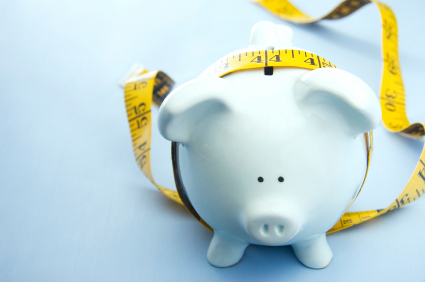Spending Strategies: How Frugality Helped Me Cut Costs and Gain Freedom from “Work”
by Dale S. Brown | August 11, 2011

In my previous blog post, I talked about how I used the program described in Your Money or Your Life to substantially lower my expenses, pay off my mortgage, and break my economic dependence on my job. Here, I’ll mention a few more strategies I followed to do this.
Most importantly, every time I bought something, paid a bill, gave to charity, or let money leave my bank account in any way at all, I wrote down the expense. Each month, I divided the expenses into categories and then studied them. I asked myself questions such as:
- Is this expense in accordance with my values?
- Is there a way that I can get the same thing at a lower cost and be ethical?
- Why did I buy X? Did it make me happy? If so, is there another way I could get equally happy?
Here are some things that I learned to do as I worked the program (which I still follow):
Cooking at home
Restaurant meals were my highest cost. I had rationalized this spending by believing it wasn’t that much more expensive, especially because I cooked for only myself. My records showed that this was not true. So, I started cooking on weekends, dividing the meals, and putting them in my refrigerator and freezer. I brought my lunches to work. And my food costs sailed down.
Putting dates on my food after I bought it
I was wasting a lot of food. If I wasn’t sure whether it was old or not, I threw it out. But now, when I come home from the grocery store, I write the date I bought the food on a sticky note and put it on the food. This is very helpful, because it keeps me aware of when I have to eat it.
Buying liter bottles instead of individual cans
My financial tracking sheets showed me another unpleasant truth: I went to the snack bar at least three times a day. Each time I went, I bought two cans of Diet Coke at 65 cents apiece. This cost $3.90 a day. The embarrassing solution? I bought liter bottles and kept them under my desk.
Becoming independent in chores
I studied the manuals of the equipment for my home office, learned to remove stains from my clothing, and saved on dry cleaning and service calls.
Recycling items and repairing rather than buying
This helped the environment as well as me. My electric razor developed a crack and I bought the razor part rather than a new razor. I became friends with the apartment manager and let him use my copy machine. When my light bulb shade shattered, he gave me an exact duplicate that he had removed from a neighbor’s apartment. Building connections with other people often ended up saving both of us money.
Becoming stricter about returning items to the store and receiving a refund or exchanged product
During my decluttering process, I found many items that should have been returned. So when a return was necessary, the item went on my coffee table until I returned it to the store.
Studying my receipts and credit card bills
I am amazed by how many errors companies make that are in their favor. I questioned duplicate entries on my credit cards, checked the bar code pricing, and generally assured my bills were correct.
These are just a few of the activities that were helpful. There were many traditional money-saving techniques that I did not use, because they were not in accordance with my values. For example, corporations manipulate us through pricing their products. So I rarely used coupons, because reviewing them exposed me to too much advertising. I rarely bought in bulk, because having the items in my house caused me to use more.
The most important change was finding new friends. Rather than going out on the town as frequently, I became friends with a group of artists who entertained each other through potlucks and getting together to share their artistic creations.
The above approach worked for me. I have many other changes that I made later on, and after paying off my mortgage I even started spending more for pleasure. But I never went back to my old ways. As a result, as I discussed in my previous blog, I accepted an agency-wide early retirement offer in 2004 and am now financially empowered to turn down work that is not in accordance with my values.
Dale S. Brown works on a portfolio of projects that empower people both in personal growth and political power. She lives in Washington, D.C. and is a guest blogger for New Dream.

